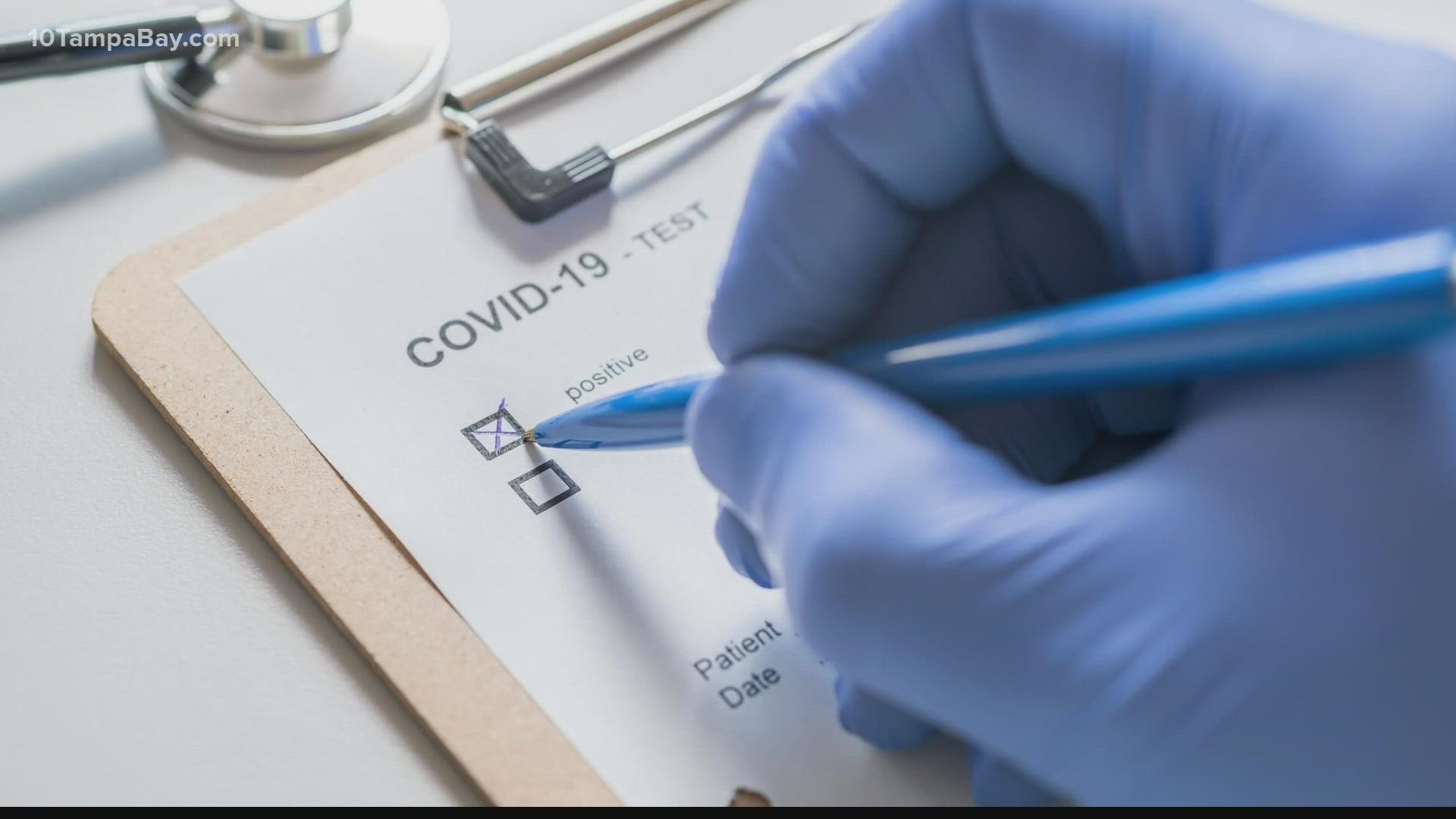TAMPA, Fla. — It's a frustrating sticking point. Fully vaccinated people can still get COVID-19.
This realization came fast when the delta variant started surging this past summer and fully vaccinated people were among the COVID-positive population, sending workers back to work from home setups and reigniting the need for masks and social distancing.
Over the weekend, White House Press Secretary Jen Psaki said she tested positive for COVID despite being fully vaccinated.
In just a few short months, researchers have learned a lot about COVID in vaccinated people. Here are some of the key takeaways:
If you test positive, a fully vaccinated person is unlikely to have a serious case, end up hospitalized or dead. Instead, they might be asymptomatic or have a few mild symptoms for a short amount of time.
"Some people could get sick, but generally we see really mild symptoms in people who have been vaccinated. You may notice a sore throat, little bit of a cough, little bit of malaise, which is just feeling tired," said Dr. Jill Roberts, an epidemiologist at the University of South Florida.
A fully vaccinated person is also less likely to transmit the virus to someone else. While a vaccinated person might have the same amount of viral load as an unvaccinated person, a vaccinated person will likely clear the virus much faster.
In other words, a vaccinated person is not contagious for very long.
A study just published in British medical journal, "The Lancet" says fully vaccinated people can contract and pass along the delta variant. However, vaccinated people get rid of the infection quicker and are contagious to others for a shorter period of time than unvaccinated people, according to the study.
Dr. Roberts said, "If you clear it, you can’t spread it. That actually changed the estimation of the R-naught."
R-naught is a number that represents how quickly a contagious disease is spreading. To understand it, all you have to do is think about the number one as a single case of coronavirus.
If the R-naught is above one, that means every person with the illness is infecting more than one other person and that means the disease is exponentially increasing.
Although it's still being studied, Dr. Roberts says the delta variant's R-naught is less than one in vaccinated people.

